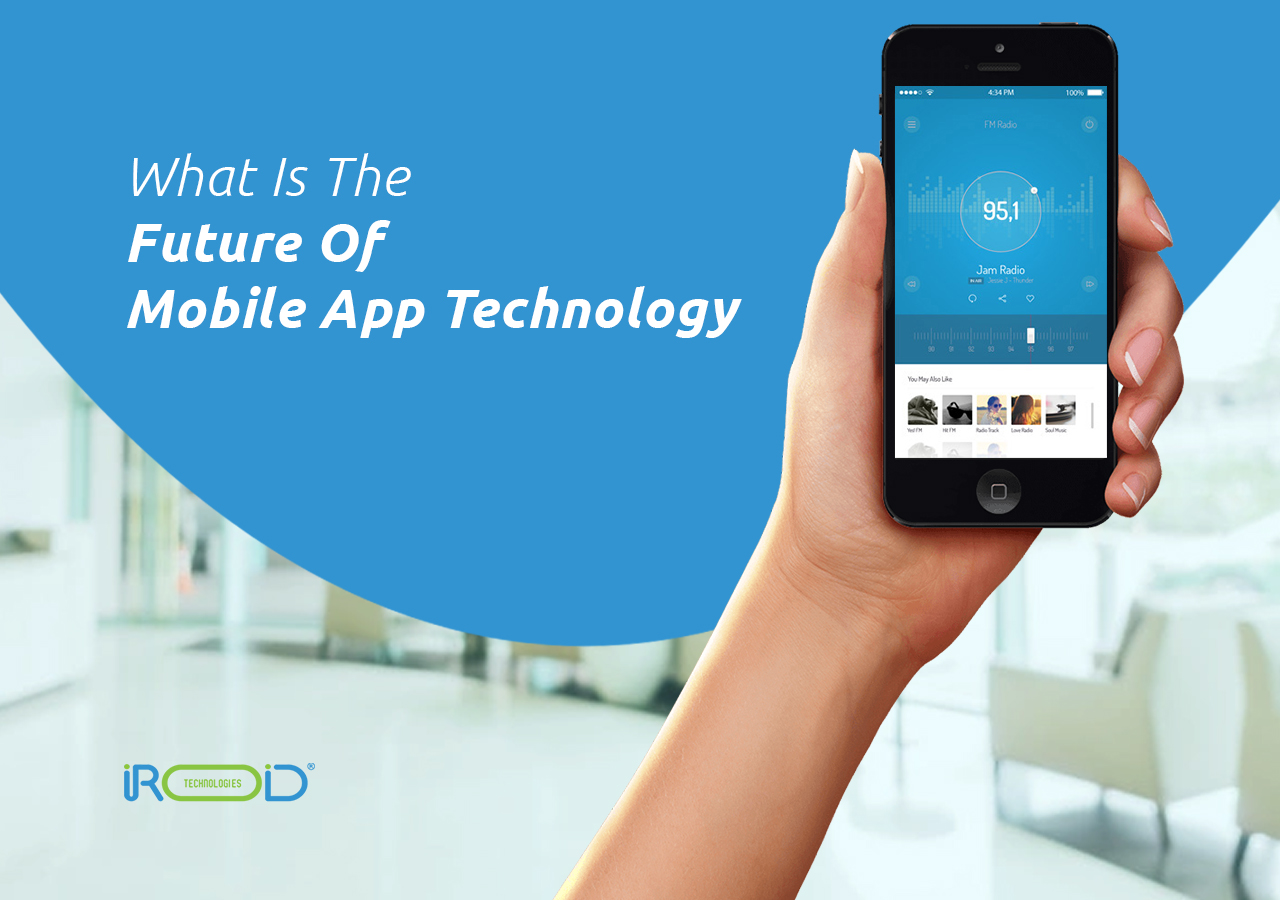What Is The Future Of Mobile App Technology?

Nowadays, cellphones are so common that it's simple to forget that mobile apps are very new. Since the first mobile phone was developed in the early 1970s, mobile app development has seen numerous revisions, drastically altering our way of life. There are no indications that the pace of mobile app development is slowing. Mobile app development is constantly being influenced by cutting-edge technologies like AI, VR, AR, and blockchain, and apps that power mobile devices and wearables frequently take centre stage. What is the outlook for developing mobile applications?
Mobile app technology is one of the developing sectors of the worldwide app market. The mobile app market is predicted to generate $693 billion in revenue in 2021. The world now has approximately 7 billion smartphone users, which is a significant increase over the past few years. Here's a fact: Every mobile app development company in India creates mobile apps for their tech-savvy clientele around the world.
Future of Mobile app technology
What is the destiny of mobile app technology and yes it is a consequential question to answer? Here are some inevitable circumstances we can see through the mobile app development division. Let's go through them.
Artificial Intelligence
AI will perform an indispensable role in the destiny of mobile app technology. It is also required to remain a trend in 2021 and in the moreover years too. It is believed that this technology can produce more personalized app practices that support users’ demands. Worldwide income from the AI market is projected to reach $125 billion by 2023. In prospect, most AI apps will be built using technologies and algorithms like machine learning algorithms and predictive analytics. This will enable mobile app developers to present a more personalized knowledge in their applications, and apps will be ready to learn from a user’s earlier actions and usage exemplars allowing AI to perform necessary actions without being directed to do so.
AR and VR in the Mobile App Industry
Augmented reality is a qualified reality version designed with the help of computer-generated details on a real picture. To make this feasible AR apps use QR codes, geolocation details, or the object recognition characteristic. Virtual reality is a technology anywhere users consume a headset and are fully involved in a computer-generated presence.
Internet of Things (IoT)
IoT is an internet-connected network where globally-used digital devices can share and transfer all the required information to users. The Internet of Things market is anticipated to reach $318 billion by 2023, globally. $161 billion of that assessment will develop from software, like mobile apps. According to Statista, IoT is also prophesied to be one of the top trending software development technologies. Some of examples of IoT are virtual assistants like Alexa and Google Assistant. They form an interactive bridge-whist between the IoT progressive tools and the tech-savvy end-users of these life-changing discoveries.
Cross-Platform Development
Based on your business requirements, Mobile app technology can change. If you want to get a market-ready application swiftly and there are not too numerous complex stories to implement, then it’s more satisfying to prefer cross-platform application development. The ultimate mobile apps trend will be happening on cross platforms which suggests the apps can be used on various mobile operating systems like iOS, Android, Windows, etc.
React Native
React Native was published by the Facebook company in 2015. Today it is used for developing cross-platform mobile apps, that too with client-oriented UI/UX.
Flutter
Flutter, developed by Google, is actually a mobile software development kit. Flutter enables one developer to create for iOS and Android concurrently from a single code base. Performed in dart language it is a well fast and powerful performative tool.
Wearables
Wearable applications can be dropped on your devices and synchronized with an abettor such as smartwatches, smart jewelry, display devices, etc. This technology is providing new possibilities for app developers. As per Statista, the number of connected wearable devices approached 453 million in 2017 and is anticipated to reach 929 million this year.
Mobile payments
As the markets of different countries are utilizing digital and society grows cashless, the level of demand for various payment arrangements such as contactless payments, online payments, e-wallets, etc. along with financial knowledge, and people’s perception of all kinds of fintech products have grown. Users favor making amends through the in-built mobile wallet for fast actions. According to a statement, there was $8.9 billion worth of purchases from mobile wallets in 2020. This is anticipated to relinquish nearly $14 billion by 2022.
Focus on Security
Data protection and privacy security is important theme in 2021. Everyone wants to use forms where personal information is secured and an app doesn’t accumulate more information than it demands, especially when it comes to delicate information in commercial and therapeutic applications. With the continuous progress in fintech, cyberhackers are coming up with different techniques of cyber deception. Hence, security should not be minimized. To secure users’ data strength software developers must control their implementations for mobile applications and connect them to the stipulations of enactment such as the Health Insurance Portability and Accountability Act (HIPAA) or General Data Protection Regulation (GDPR).
Final words
Mobile app technology is developing rapidly. With the emergence of new smart appliances, AI development, VR/AR space the app industry has a future to enhance the first in terms of investment. To stay ambitious, not only big-tech companies but small companies consider beginning their mobile apps that are customer-oriented and follow the most advanced market inclinations. For more understanding of the app development, consult with the top app development company in India at iROID Technologies.

